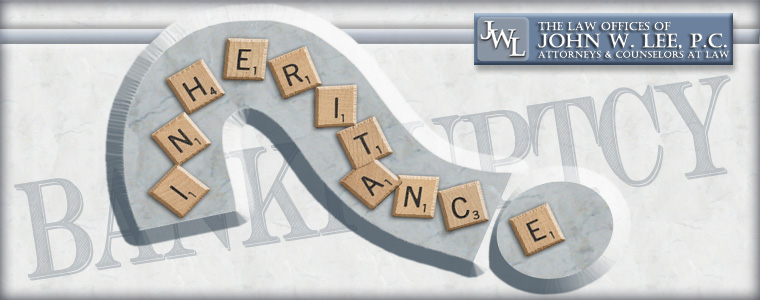By John W. Lee, P.C.
An IRA (Individual Retirement Accounts) that has been inherited is not exempt property in Bankruptcy.
The United States Supreme court decided on June 12, 2014, in a rare unanimous decision that inherited IRA funds are not exempt in bankruptcy. The Court decided in Clark et ux. v. Rameker, Trustee, et al (714 F3rd 559) (7th Cir. 2013) that a Bankruptcy Trustee could administer the funds in an inherited IRA because they were not an exempt asset.
Exemptions are laws that allow a debtor to keep certain property when filing for bankruptcy. Normally when a debtor files for bankruptcy the Trustee can take his property and sell it for the benefit of the creditors. A property that is exempt is a property that the trustee can not take. Exemptions are different from State to State, some States use federal exemptions, while others have opted to create their own set of exemption laws. There are exemptions that allow a debtor to keep his clothes, furniture, pet, family heirlooms, wedding rings, etc. Other exemptions are limited to certain dollar amounts, for example a debtor may keep a certain portion of equity in his house, tools of the trade, tax refund, money in a bank account, and cash value in a life insurance policy. The exemption for retirement funds, including IRA, is a federal exemption that applies in all States.
Section 522 of the United States bankruptcy code provides in part that an IRA, up to one million dollars is not part of the bankruptcy estate. The Code also allows this amount to increase over time. That means if you put money in an IRA then the Bankruptcy Trustee can not take the IRA and liquidate it for the benefit of your creditors, in short, your IRA is safe in bankruptcy.
The Court ruled that inherited IRAs are not retirement funds because (1) the holder of the account may never put more money into the account; (2) the holder is required to withdraw the funds from the account regardless of how far from retirement they may be; and (3) because the holder may withdraw the entire amount out at any time for any reason. Essentially, the Court ruled that because an inherited IRA does not have the same characteristics as an IRA funded by the debtor himself, it was not protected from the creditors.
While this may not be a very common situation, it is a very important factor to consider when filing bankruptcy. If you know that you have or may inherit an IRA in the near future, you should make sure you tell your bankruptcy attorney. When filing bankruptcy, you have a duty to inform the court of any inheritance that you may receive in the 180 days preceding the filing. If you receive a sum of money within 180 days after having filed a bankruptcy, you may have to turn over that money to the Chapter 7 Trustee for distribution to your creditors.
If you notify your attorney prior to filing a bankruptcy that you may be receiving an inheritance in the near future, or that you have received an inheritance, then he may be able to take steps to protect the inheritance. However, if the attorney does not find out about the inheritance until after a bankruptcy has been filed, there is little he can do to protect it.
This may be considered advertising material.


